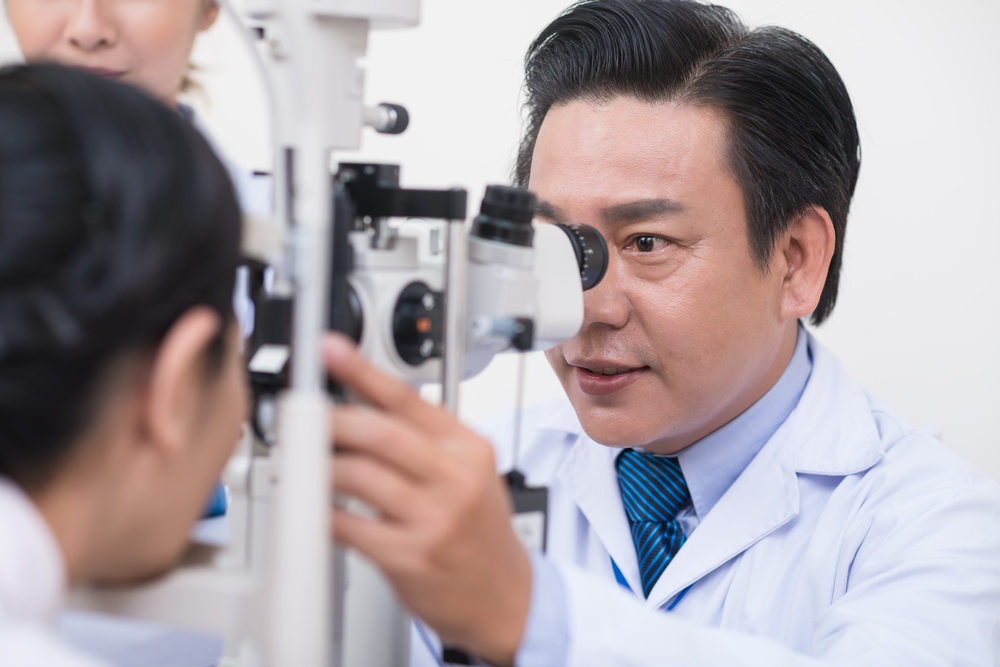Blurry driving at night is a common issue that can significantly impact daily life. Many people ask, "Why does my vision get blurry at night?" This problem can affect activities such as driving, walking, or simply enjoying an evening out. Understanding the causes of nighttime blurry vision and exploring potential solutions is crucial for improving quality of life and safety after dark.
What is Night Blindness?
Night blindness, also known as nyctalopia, is characterized by difficulty seeing in low light or darkness. It is not a disease in itself but rather a symptom of various underlying eye conditions. People with night blindness often struggle to see clearly in dimly lit environments, making it challenging to perform activities like driving at night or navigating in poorly lit areas.
Common Symptoms of Night Blindness
Night blindness can manifest in various ways, impacting daily activities and overall quality of life. Common symptoms include:
- Difficulty seeing in low-light conditions
- Trouble adapting to darkness after being in bright light
- Poor vision while driving at night
- Frequent tripping or bumping into objects in dim lighting
- Difficulty recognizing faces or objects in low light
Related Content: Winter Driving and Nighttime Vision Blurriness

Causes of Blurry Vision at Night
Blurry vision at night can result from various issues. Here are some common causes and their effects on night vision.
Cataracts
Cataracts occur when the eye's lens becomes cloudy, causing vision problems.
- Impact on Night Vision: Cataracts scatter light, creating glare and halos around lights at night, leading to blurred vision.
Dry Eye
Dry eye syndrome results from insufficient tear production or rapid tear evaporation.
- Effect on Nighttime Visual Acuity: Blurred vision can get worse at night if the eyes aren’t producing enough tears for moisture.
Diabetes
Diabetes can cause diabetic retinopathy, where high blood sugar damages retinal blood vessels.
- Association with Night Vision Impairment: This damage leads to blurred vision and difficulty seeing at night due to impaired light processing in the retina.
Other Common Causes
- Aging: Natural changes reduce the pupil's ability to dilate, impairing night vision.
- Retinitis Pigmentosa: A genetic disorder causing gradual vision loss and poor night vision.
- Vitamin A Deficiency: Lack of vitamin A leads to night blindness and other vision problems.
- Excessive Light Exposure: Prolonged bright light or screen exposure strains the eyes, causing temporary night blurriness.

How is Night Blindness Diagnosed?
Diagnosing night blindness involves several key steps by eye specialists to determine the cause and severity.
Diagnostic Procedures
- Comprehensive Eye Exam: Assesses overall eye health and vision clarity.
- Patient History: Gather information on symptoms, duration, and underlying health conditions.
- Visual Acuity Test: Measures vision at different distances to identify refractive errors.
- Slit-Lamp Examination: Magnified view of eye structures to detect abnormalities.
- Retinal Exam: Checks the retina and optic nerve for signs of damage or disease.
- Electroretinography (ERG): Measures retina's electrical response to light, diagnosing retinal conditions.
- Dark Adaptation Test: Evaluates how well eyes adjust from bright to dim lighting.
How is Night Blindness Treated?
Treating night blindness involves addressing its underlying cause. Here are the treatment options for specific conditions:
Cataracts
Surgical Options:
- Cataract Surgery: The cloudy lens is removed and replaced with an artificial lens. This is the most effective treatment for restoring vision affected by cataracts.
Non-Surgical Options:
- Eyeglasses or Contact Lenses: Special lenses can help improve vision, although they do not cure cataracts.
- Improved Lighting: Using brighter lights can help manage symptoms temporarily.
Dry Eye
Management Strategies:
- Artificial Tears: Lubricating eye drops can relieve dryness and improve comfort.
- Prescription Medications: Medications like cyclosporine (Restasis) can reduce inflammation and increase tear production.
- Lifestyle Changes: Reducing screen time, using a humidifier, and taking regular breaks can help alleviate symptoms.
- Warm Compresses and Lid Hygiene: These can improve oil gland function and reduce dry eye symptoms.
Diabetic Retinopathy
Treatment Modalities:
- Blood Sugar Control: Managing blood sugar levels is crucial to prevent the progression of diabetic retinopathy.
- Laser Surgery: Used to seal or shrink abnormal blood vessels in the retina.
- Vitrectomy: Surgical removal of the vitreous gel in the eye can help in severe cases.
- Anti-VEGF Injections: Medications like Avastin, Lucentis, or Eylea are injected into the eye to reduce blood vessel growth and leakage.
Vitamin A Deficiency
Dietary Interventions and Supplementation:
- Dietary Changes: Increasing the intake of vitamin A-rich foods such as carrots, sweet potatoes, spinach, and liver.
- Supplements: Vitamin A supplements can help correct deficiency and improve night vision. Always consult with a healthcare provider before starting supplements.

How to Prevent Night Blindness
Preventing night blindness involves proactive measures to maintain healthy vision and minimize risk factors. Here's how:
Routine Eye Exams
Regular check-ups with an eye care professional are crucial for detecting and addressing vision issues early. Comprehensive exams can identify conditions like cataracts, diabetic retinopathy, and vitamin deficiencies that may contribute to night blindness.
Vitamin A Intake
Ensure an adequate intake of vitamin A, which is essential for eye health and night vision. Incorporate vitamin A-rich foods like carrots, sweet potatoes, spinach, and liver into your diet. If necessary, consider supplements under the guidance of a healthcare provider.
Sunglasses Usage
Protect your eyes from harmful UV rays by wearing sunglasses whenever you're outdoors, even on cloudy days. Prolonged exposure to UV radiation can increase the risk of cataracts and other eye conditions that may affect night vision.
Physical Activity
Engage in regular exercise to promote overall health, including eye health. Physical activity improves blood circulation, delivering essential nutrients and oxygen to the eyes. Aim for at least 30 minutes of moderate exercise most days of the week.
Eye Care With Specialty Eye Institute
For those experiencing bad vision driving at night, professional eye care is crucial. At Specialty Eye Institute, we offer personalized diagnosis and treatment plans.
Don't ignore nighttime visual disturbances—trust our experienced team to provide expert guidance and develop a customized treatment plan tailored to you. Schedule an eye examination with Specialty Eye Institute today to prioritize your eye health and take the first step towards clearer vision.
 877-852-8463
877-852-8463 Careers
Careers Locations
Locations Patient Portal
Patient Portal Request Appointment
Request Appointment






 877-852-8463
877-852-8463
